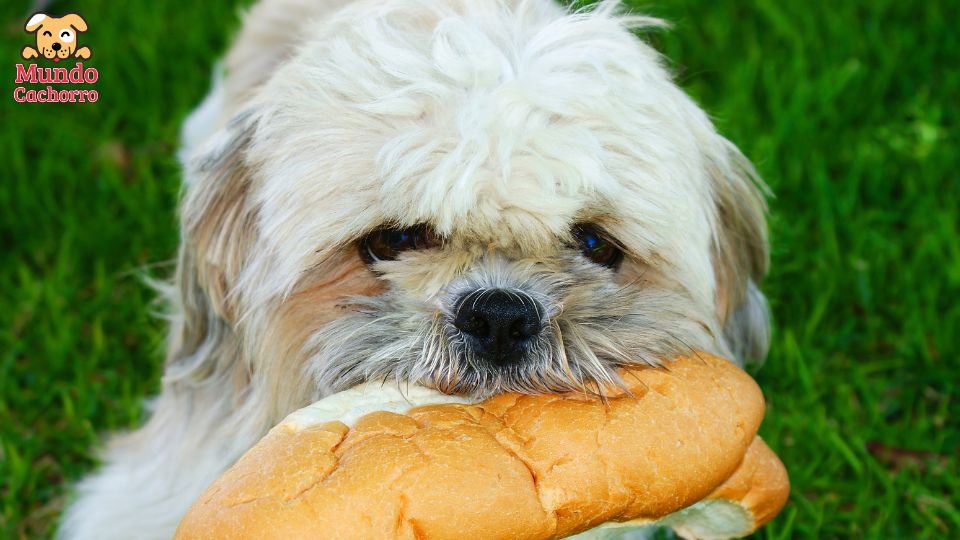Bread in the diet of dogs: is it safe to share?
Bread is a staple in the human diet, but what happens if you decide to share this food with your dog on a regular basis? Many pet owners may be tempted to give their dogs a piece of bread as a treat or simply as part of their daily routine. However, it is important to understand the possible effects that regular consumption of this food can have on your pet’s health.
Indice
Is bread safe for dogs?
In small amounts, plain, additive-free bread is generally non-toxic to dogs and can be safe as an occasional treat.
However, regular and excessive consumption of bread can have several negative effects on your dog’s health.
Consequences of daily bread consumption for your dog
Digestive problems
One of the risks associated with feeding your dog bread every day is the risk of digestive problems. Bread, especially if it is wheat or contains yeast, can be difficult for some dogs to digest, which can lead to stomach upset, gas and even diarrhea. In addition, excessive consumption of simple carbohydrates present in bread can unbalance your dog’s intestinal flora, which could result in long-term gastrointestinal disorders.
Weight gain
Bread is relatively high in calories and carbohydrates, which means that if offered in excess, it can contribute to weight gain in dogs. Overweight and obesity in dogs can lead to a number of health problems, including diabetes, heart and joint disease, and even a shortened life span. It is essential to monitor your dog’s calorie intake and ensure that he is receiving a balanced diet suitable for his specific nutritional needs.
How to avoid obesity in a dog
Dental problems
Bread can stick to your dog’s teeth, especially if it is sticky or contains ingredients such as raisins or dried fruits. This can contribute to plaque and tartar buildup, which increases the risk of periodontal disease and long-term dental problems. In addition, some dogs may have allergies or sensitivities to certain ingredients in bread, such as wheat, which could cause oral irritation or allergic reactions.
How to remove tartar from your dog’s teeth
Nutritional deficiencies
While bread may provide some additional calories to your dog’s diet, it is important to note that it does not provide the essential nutrients your pet needs to stay healthy. Dogs require a balanced diet that includes proteins, fats, vitamins and minerals in adequate amounts. If bread becomes a major part of your dog’s diet, it could lead to nutritional deficiencies and long-term health problems.
Diabetes and sugar problems
Some types of bread, especially those containing added sugar, can increase the risk of diabetes in dogs. Regular consumption of foods high in sugar can affect your pet’s blood glucose levels, which could contribute to the development of canine diabetes mellitus. This condition may require long-term medical treatment and have a significant impact on your dog’s quality of life.
6 tips to take the best care of your dog’s health
Bread: occasional food for your dog
In summary, while it is possible to give your dog an occasional piece of bread as a treat, offering this food on a regular basis can have negative long-term health consequences. It is important to limit the amount of bread you consume and opt for healthier and more balanced options to reward your dog. Always consult with your veterinarian if you have any questions or concerns about your pet’s diet and follow their recommendations to ensure their overall well-being.








